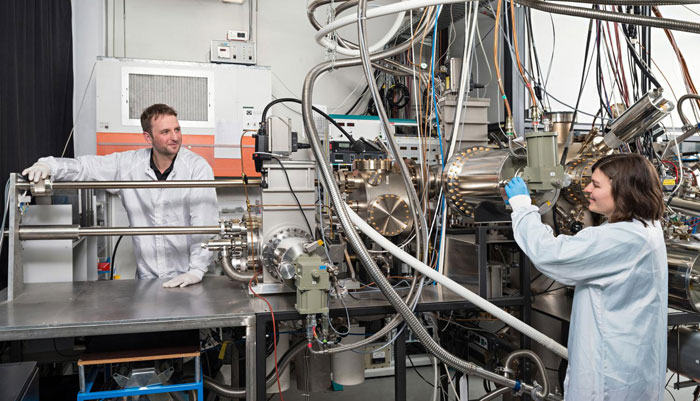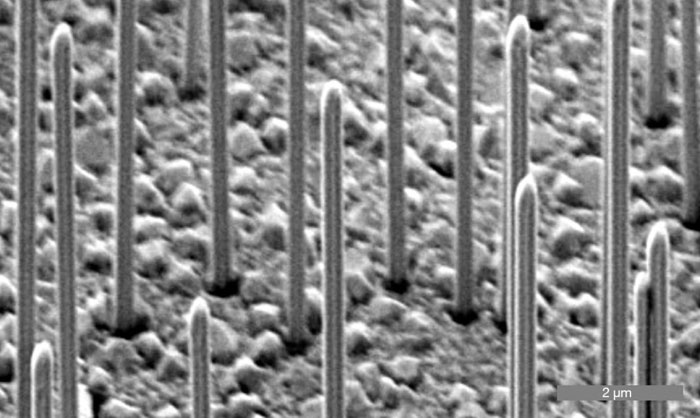A breakthrough that could have a big impact on the development of photonic processors has been made by physicists at the Technical University of Munich (TUM), reports Phys. The TUM team have developed an ingenious process that allows them to 'grow' nanowire lasers onto a silicon chip. These nanolasers are incredibly fine, about a thousand times thinner than a single human hair.

Photonics could be a great way to accelerate chips without relying upon the increasingly difficult and expensive task of shrinking manufacturing processes. "Today already, transistors are merely a few nanometres in size. Further reductions are horrendously expensive," said Professor Jonathan Finley, Director of the Walter Schottky Institute at TUM. "Improving performance is achievable only by replacing electrons with photons, i.e. particles of light."
The breakthrough at TUM is significant because growing the nanolasers directly onto silicon chips, using a patent pending method devised by the physicists, is said to be capable of producing high performance photonic components cost effectively. To get to where they are now the TUM team had to bypass several problems, such as various incompatibilities between materials and adding the mirrors required by the lasers to function.

Gallium-arsenide nanowires grow out of a silicon surface
Currently the gallium arsenide nanowire lasers produce infrared light of a predefined wavelength but the team wish to progress the development to be able to modify the emission wavelength. Also the work on an electric interface, so that we can operate the nanowires under electrical injection is being worked upon, instead of relying on external lasers.
Summing up and reminding us of the importance of this development, "the work is an important prerequisite for the development of high-performance optical components in future computers," said Prof Finley.













